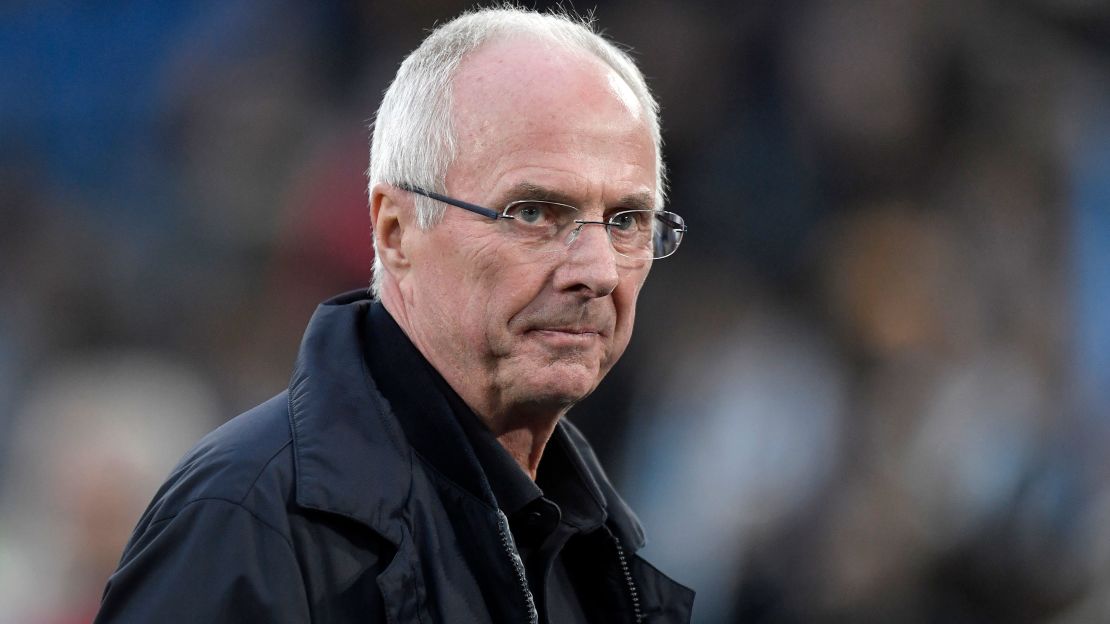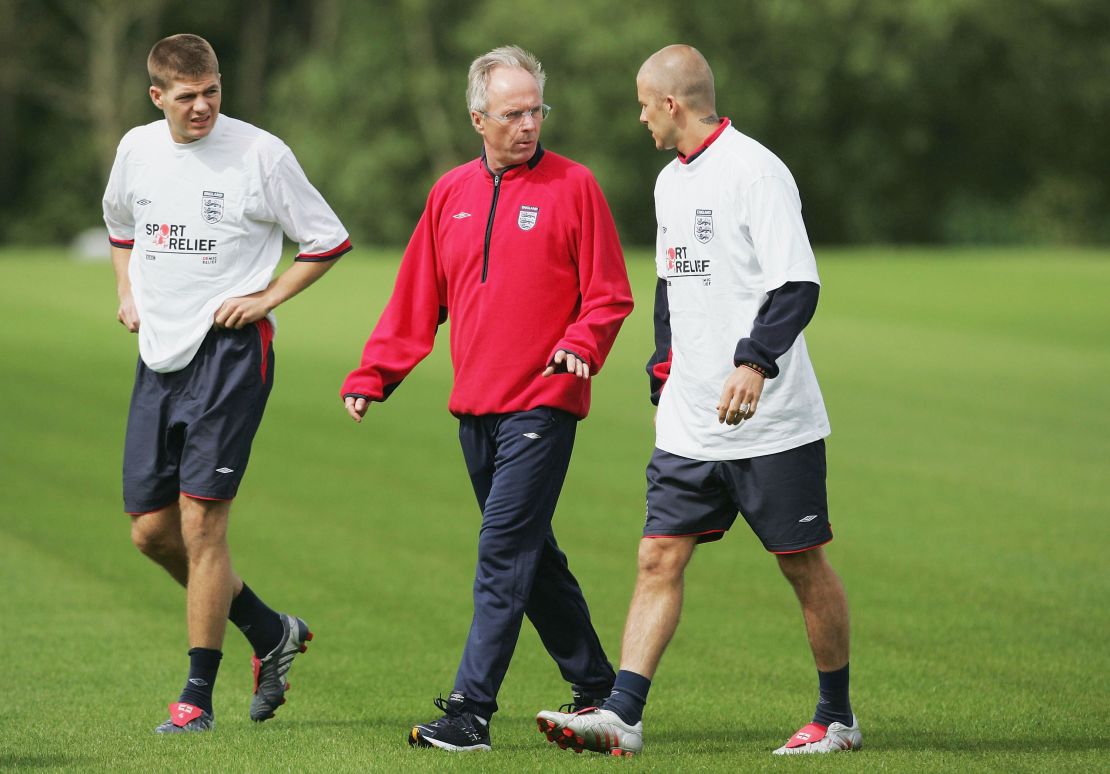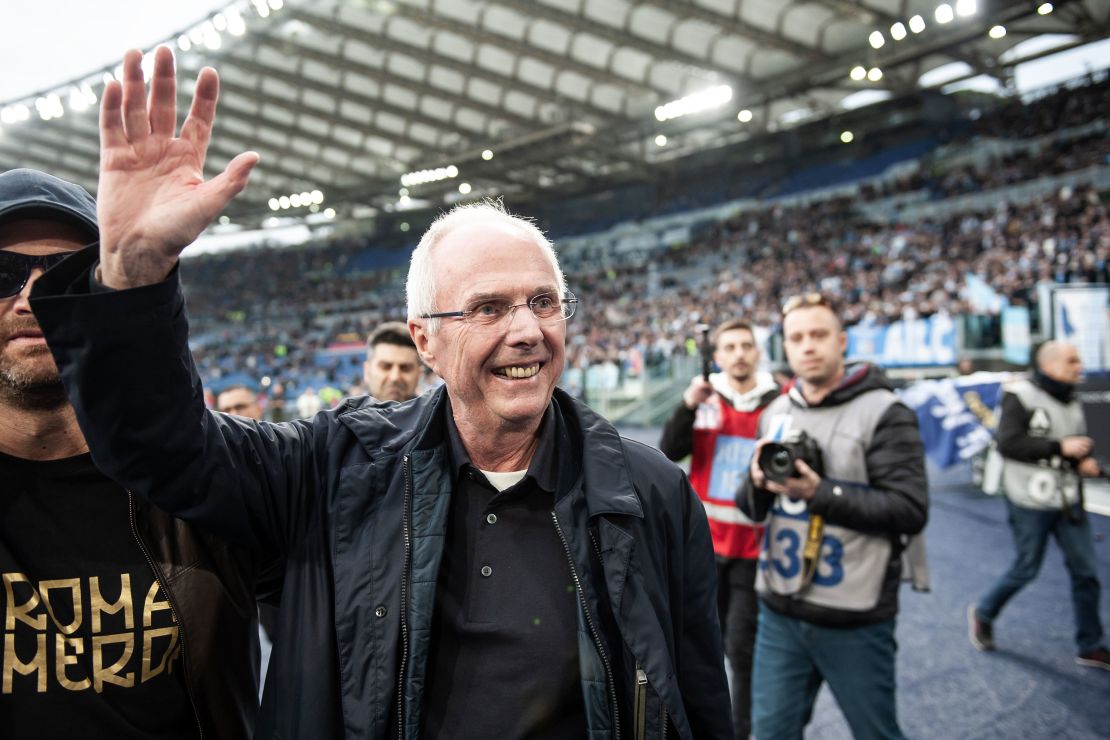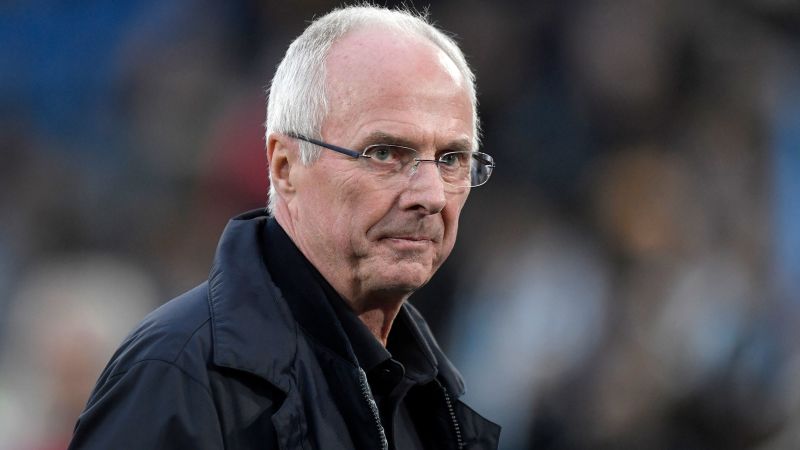CNN
—
Two months after revealing his terminal cancer diagnosis, Sven-Göran Eriksson remains upbeat, approaching his life with the sort of tenacity required when holding perhaps the most demanding job in football.
“The doctor is saying I’m not okay, but I feel rather okay,” Eriksson tells CNN Sport. “I have what I have, so I know that it’s a cancer and you can’t cure it. You have to try to stop it as much as possible. That’s it. But I’m okay.”
The former England manager announced in January that he has “about a year” to live having been diagnosed with pancreatic cancer.
After a long managerial career spanning more than 40 years, he is now back home in his native Sweden, undergoing treatment and reflecting on his significant contribution to the game.
“The treatment is going fine,” says Eriksson. “It’s up and down, of course. Sometimes, it’s growing a little bit; sometimes, it’s going backwards a little bit.
“It’s some sort of a fight, but I’m not sitting in a corner crying. I live the life as I lived before, almost. And it’s okay. I’m still on my feet.”
Eriksson won club titles with IFK Göteborg in Sweden (including the 1981/82 UEFA Cup, now known as the Europa League), Lazio in Italy, and Benfica in Portugal as part of his globe-trotting managerial career, but it’s his almost six years spent with England for which he is best remembered by many.

Eriksson became the Three Lions’ manager, the team’s first overseas appointment, after four successful years with Lazio, guiding the club to only its second – and still its most recent – Serie A title in 2000. His next job, however, would be the toughest of his career.
He took England’s “Golden Generation” – the likes of David Beckham, Wayne Rooney, Frank Lampard and Steven Gerrard – to three major tournaments between 2001 and 2006, though never progressed beyond the quarterfinal stage.
“England is something special,” says Eriksson. “I don’t know if football was born in England, but more or less … and the Premier League is the best league in the world today. To be the England coach, it’s a big, big job … probably the biggest in the world.”
After the prime minster, so the saying goes, the manager of the national team is the most important person in England. And with great power comes great scrutiny – not least at the hands of the tabloid press.
Eriksson’s personal life was often the topic of front-page interest on national newspapers in England, notably over a number of alleged affairs.
The country’s tabloid press, Eriksson says, is not “a mirror of the English people,” and the way his personal life became embroiled in national news was a facet of the job to which he unhappily had to resign himself.
“When you talk about paparazzi and that kind of press, you can’t do anything about it,” he adds. “You have to accept it or go back home to Sweden.
“I said to myself: ‘No, Sven. Don’t give up just because of this. Don’t worry about it and don’t read it and don’t talk about it.’ It’s up to the press if they want to write it or not. And at the end, I couldn’t care less.”

Despite the media glare and disappointment at major tournaments, Eriksson also enjoyed euphoric moments with England.
A 5-1 win away against Germany in 2001 was followed by a sensational Beckham free-kick against Greece a few weeks later. The curling, long-range effort – virtually the last act of the game – ensured England drew 2-2 and qualified for the World Cup.
“That was a beautiful goal,” Eriksson remembers. “That’s what the captain should do, and he did it.”
The 76-year-old speaks fondly of the “beautiful” excitement in England before a major tournament and believes that the current team has an excellent chance of winning this year’s European Championships in Germany under manager Gareth Southgate, three years after losing the final against Italy.
“I can’t see any team which is much better,” says Eriksson. “It could be France, maybe; Spain are not as good as they were; Germany – you never know about Germany. But looking at the squad, the team England can put on the pitch, I think they are very, very strong.”
News of Eriksson’s cancer diagnosis has been met with an outpouring of love and support from the football community, both in England and around the world.
A lifelong Liverpool fan, he has been invited to coach the club for a legends match against Ajax on Saturday, fulfilling his dream of managing the English Premier League club. That will be one final chance for Eriksson to do what he has done for much of his life: sit on the bench, soak up the atmosphere and do his best to inspire his players to beat the opposing team.

“Of course, sometimes you are lucky, sometimes you’re doing well, sometimes you have injuries, the team doesn’t work and things like that,” he says of his time as a manager.
“It’s a lot of things, but the stress is always there. I loved that stress, and I miss that stress … Football is a drug, especially if you are involved in it in a heavy way.”
It’s been five years since Eriksson’s last formal coaching job with the Philippines national team, but it seems fitting that he should get his managerial send-off at a club he has long admired and in a country with which he has a special connection.
The support he’s received from the football-supporting public, he says, has been “beautiful” and touching.
“I’m a little bit lucky – they’re telling me how good I was when I’m still alive,” Eriksson jokes. “Normally, it’s after the funeral you hear that. So, I’m okay. I shall not complain.”






